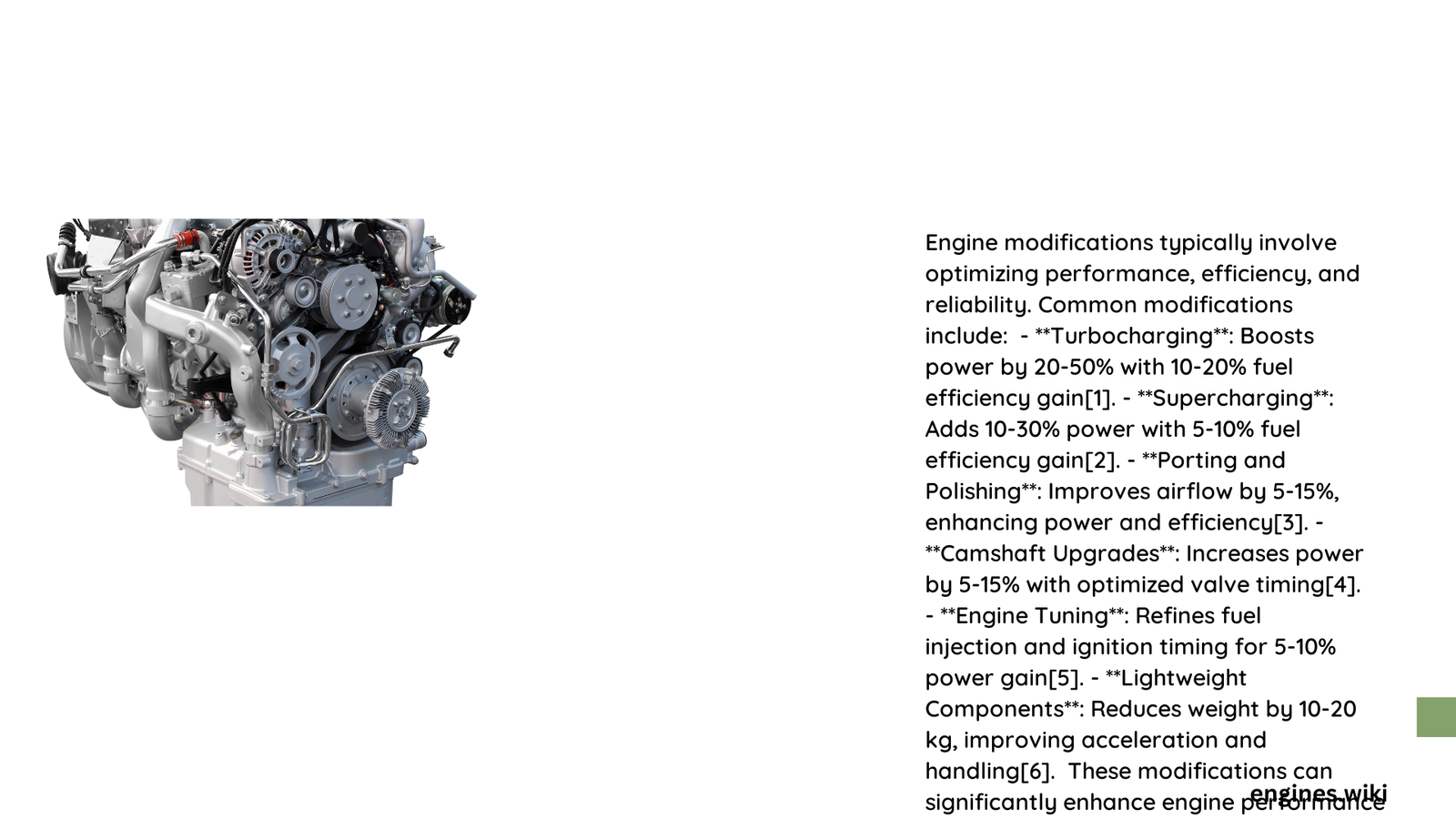Engine modifications represent a sophisticated approach to enhancing vehicle performance, enabling automotive enthusiasts to unlock unprecedented power, efficiency, and driving dynamics. By strategically implementing advanced technological interventions, drivers can transform their standard engines into high-performance powerhouses, achieving significant horsepower gains, improved torque characteristics, and optimized fuel efficiency through precise engineering techniques.
What Are the Most Effective Engine Modifications?
Turbocharger: Power Amplification Strategy
How Does Turbocharging Enhance Engine Performance?
Turbocharging represents a revolutionary method of engine modification that dramatically increases power output by forcing more compressed air into the combustion chamber. Key performance characteristics include:
- Horsepower Potential: 50-100% power increase
- Typical Boost Pressure: 6-15 PSI
- Compressor Wheel Size: 60-80 mm diameter
| Turbocharger Type | Performance Characteristics | Typical Application |
|---|---|---|
| Single Turbo | Straightforward installation | Inline engines |
| Twin Turbo | Reduced turbo lag | V-configuration engines |
| Sequential Turbo | Progressive power delivery | High-performance vehicles |
Cold Air Intake: Breathing New Life
Why Install a Cold Air Intake System?
Cold air intake modifications provide a direct pathway to improved engine respiration, offering multiple performance benefits:
- Temperature Reduction: Cooler air increases oxygen density
- Horsepower Gains: Typically 5-15 additional horsepower
- Enhanced Throttle Response
Engine Remapping: Digital Performance Optimization
What Can ECU Tuning Achieve?
Engine Control Unit (ECU) remapping allows precise software modifications to unlock hidden performance potential:
- Power Increase: 10-30% horsepower improvement
- Fuel Efficiency: Potential 5-10% optimization
- Cost Range: $300-$1,500 per tuning session
Performance Tuning: Precision Engineering
How Do Standalone ECUs Transform Engine Capabilities?
Performance tuning involves intricate adjustments to maximize engine potential:
- Timing Modifications: Precise ignition and fuel injection adjustments
- Stress Management: Careful monitoring of engine health
- Customization Level: Comprehensive performance transformation
Critical Considerations for Engine Modifications
What Risks Should Enthusiasts Understand?
- Potential reduction in long-term engine reliability
- Warranty implications
- Need for complementary upgrades
- Professional installation recommended
Technical Expertise Requirements
Successful engine modifications demand:
– Advanced mechanical knowledge
– Understanding of thermodynamic principles
– Comprehensive vehicle system comprehension
– Investment in quality components
Conclusion

Engine modifications represent a complex intersection of engineering, technology, and automotive passion. While potential performance gains are substantial, strategic planning, professional guidance, and meticulous implementation remain crucial for achieving optimal results.
